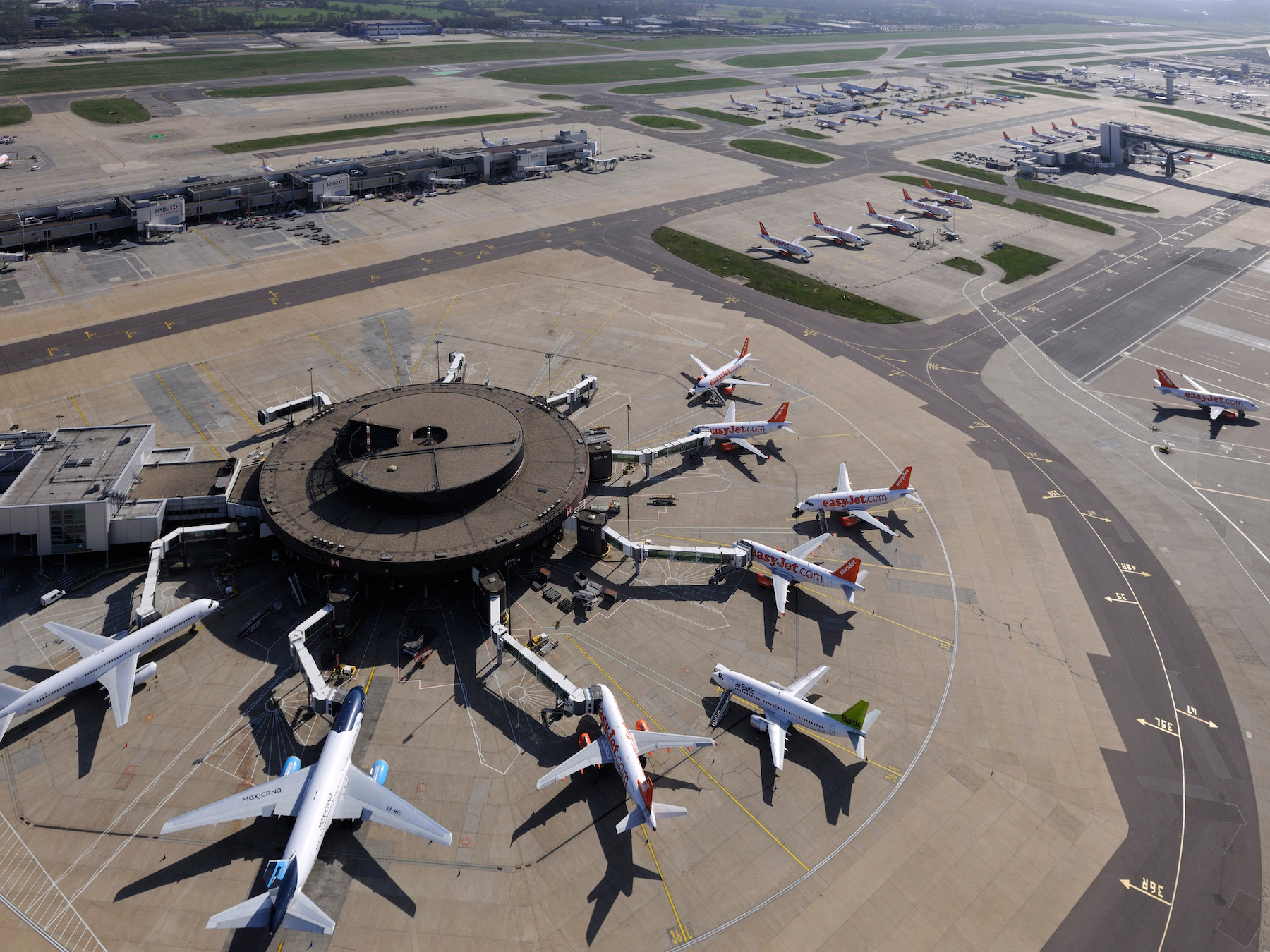- President Donald Trump’s move to restrict travel between the US and several European countries appeared to take the airline industry by surprise, according to industry consultant Henry Harteveldt.
- Airlines are attempting to react to the news and adjusting their operations accordingly as passengers on both sides of the Atlantic are left confused.
- The travel restrictions affect European countries in the Schengen Zone and will only allow flights to 11 approved entry airports throughout the US.
- The big three US airlines are in a good position to ride out a downturn and the effects of the travel restrictions but some European airlines may not survive the next few months, Harteveldt explained.
- Visit Business Insider’s homepage for more stories.
President Donald Trump’s move on Wednesday night to restrict travel between the United States and countries in Europe’s Schengen Area appeared to catch the airline industry by surprise.
Airlines on both sides of the Atlantic were fumbling to address the concerns of travelers and were unsure of how their operations would be impacted by the restrictions placed on transatlantic travel. All three US airlines only publicly stated that they intend to comply with the restrictions when asked for comment by Business Insider.
The US Department of Homeland Security clarified Trump’s announcement, saying US citizens and some countries would not be affected by the travel restrictions.
Airline industry consultant Henry Harteveldt of Atmosphere Research told Business Insider he believes the announcement was a surprise to the airlines and that they’re still determining how they’ll respond.
"I suspect what you will see happening is the US airlines as well as [European] flag airlines announce reductions or suspensions in flights between the US and continental European destinations."
Harteveldt said the restrictions set forth by Trump only affect areas in the Schengen Zone of the European continent where border controls are relaxed to promote freedom of movement for people, goods, and ideas, a key tenet of the European Union.
As a result, the United Kingdom and Ireland are not impacted by the travel restrictions. The two countries, the former of which officially cut ties with the European Union on January 31, have maintained border controls for entrants coming from the European mainland.
The airlines most impacted by Trump's proclamation will be those with service to airports not on the US Department of Homeland's Security's list of gateway airports for health screening, explained Harteveldt.
Notable absentees from the list of approved entry airports from Europe include Philadelphia International Airport, Miami International, Charlotte Douglas Airport, and Boston Logan, hubs where American Airlines operates numerous daily flights to Europe.
Philadelphia International is American Airlines' East Coast gateway to Europe and, according to Harteveldt, the airline may have to shift or temporarily suspend those flights if the airport can't accept arrivals from the continent, which would greatly impact American's bottom line.
United Airlines and Delta Air Lines are less likely to be impacted as most of their European gateways are on the list of approved airports for European arrivals.
For United, the only airports where the airline operates multiple daily flights to Europe that are not on the list is Houston's George Bush Intercontinental Airport and Denver International. These are secondary gateways compared to its East Coast hubs. Delta's hubs in Salt Lake City and Minneapolis are also not on the list.
Routes to secondary markets in the US are among the most impacted, Harteveldt said. They will need to be suspended until mid-April when the president's travel restrictions are expected to end. Those routes include Raleigh-Paris and Cincinnati-Paris, both operated by Delta Air Lines.
Finnair announced Thursday it would cancel its flights to the US for the entirety of the 30-day period, despite operating to airports listed as gateways for health screening in cities like New York and Los Angeles. Finnair was already hit hard by the initial outbreak of COVID-19 in Asia as the airline's route network focuses on connecting Europe and Asia through Helsinki.
Despite the new challenges, US airlines are unlikely to lose too much ground according to Harteveldt, as they have worked to strengthen their balance sheets since the 2008 financial crisis.
"All [US] airlines have taken steps to increase their balance sheets, build up cash reserves, and pay down debt," Harteveldt said, adding that carriers are in "much better shape than they were 12 years ago during the financial crisis," which will likely enable them to ride out the downturn and losses incurred from the president's restrictions.
The two airlines that may not survive are Europe's Norwegian Air and Alitalia.
Alitalia, according to Harteveldt, has been experiencing financial difficulties since before the spread of COVID-19 that have threatened its existence. And with Italy under lockdown, the airline's future is in jeopardy.
Low-cost carrier Norwegian Air similarly experienced issues that impacted its business before the spread of the coronavirus, such as the grounding of the Boeing 737 Max that halted its fleet-renewal plans and issues with Rolls-Royce's Trent 1000 engines that grounded some of its Boeing 787 Dreamliners.
"Norwegian has a relatively week balance sheet," Harteveldt said. The airline has had to drastically cut routes and scale back expansion plans.
US airlines are poised for a rough patch, but are expected to weather the difficulties, Harteveldt said.
"I don't think we will see any of the big US airlines shut down but will announce steps to reduce their cash burn."

